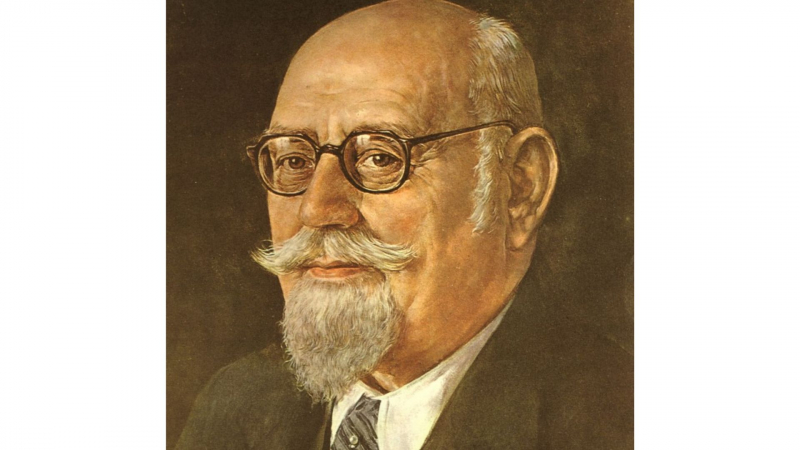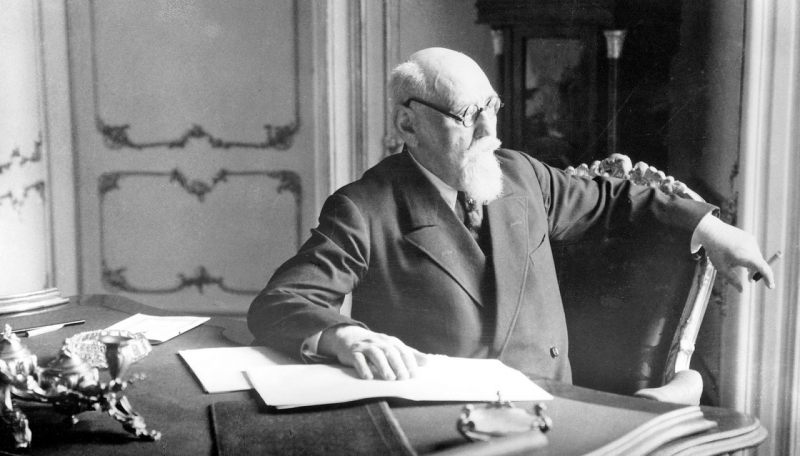Karl Renner
Karl Renner was an Austrian politician who belonged to the Social Democratic Workers' Party of Austria (14 December 1870 – 31 December 1950). Due to his leadership of the first governments of German-Austria and the First Austrian Republic in 1919 and 1920, as well as his pivotal role in establishing the current Second Republic following the fall of Nazi Germany in 1945 and serving as its first President following World War II, he is frequently referred to as the "Father of the Republic".
Early in his political career, he produced fresh viewpoints on the law while hiding his original concepts behind various aliases (such as Synopticus and Rudolf Springer) out of fear of losing his desired position as parliamentary librarian. His interest in the issues facing the Austrian state, whose existence he defended on geographic, economic, and political reasons, was particularly keen. He supported the so-called "personal autonomy" in the nationality debate, which should serve as the foundation for the creation of a supranational state. This affected the Social Democratic Party's platform and approach to the issue. He was regarded as one of the founders of Austro-Marxism as a theory.
In the talks of St. Germain, where the "Republic of Austria" was accepted but named the responsible successor to Imperial Austria, he served as the head of the delegation that represented this new German-Austria. Renner was elected as the first head of state ("State Chancellor") of that young, little German-speaking republic that refused to be seen as the heir to the Habsburg monarchy and rather to be called the Republic of German-Austria.









